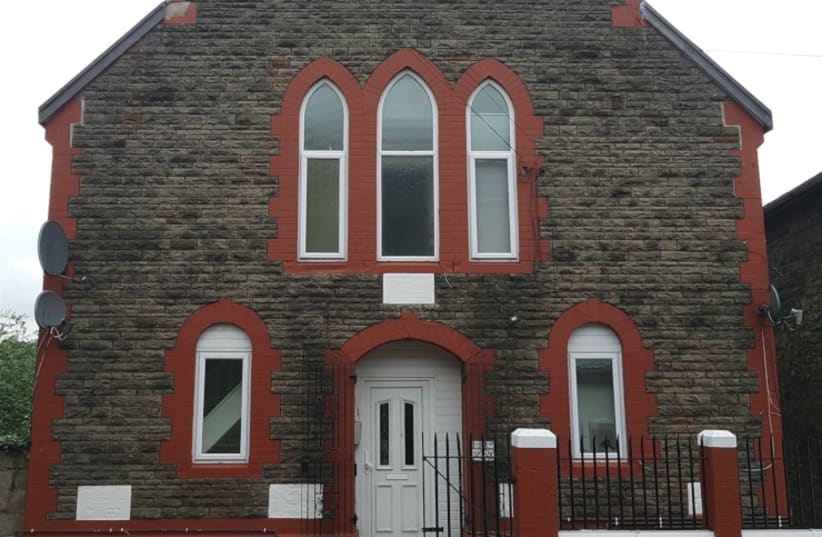The Jewish History Association of South Wales (JHASW) has been awarded £54,200 by the National Lottery Heritage Fund to continue a project that aims to preserve and tell the 250-year-old story of the South Wales Jewish community.
The organization also managed to raise another £3,000 through crowdfunding, £2,400 contributed by JHASW supporters, with £1,000 also being donated by Cardiff University.The ambitious £60,000 project, which will include tracing the stories of victims of the Holocaust with links to south Wales, now has the go-ahead to continue with the second phase of the community heritage project.Earlier this year, project organizers explained that the South Wales Jewish community is believed to date to the 1730s, “when according to oral tradition, the first settlement was established in Swansea.As the Jewish community in South Wales continues to dwindle, the group stressed that “it is vital to record the stories of those still living before they are lost forever.”On Monday, project manager Klavdija Erzen explained that there are several aims to the second phase of this project, which includes researching “the stories of people named on the Cardiff Reform Synagogue Memorial Tablet (erected in memory of relatives of synagogue members who died in the Holocaust and whose graves are unknown), to create a digital Cardiff Jewish heritage trail and upload it to the ‘Walking Jewish History’ phone app and to build a heritage preservation toolkit that will enable individuals and communities with no previous experience of heritage projects, to create high-quality digital outputs and make them available to as wide an audience as possible.”Erzen said that they also aim “to identify Jewish material stored with Rhondda Cynon Taf museums, improve the existing records by adding new interpretations, digitise the material, and share it on People’s Collection Wales.”This is the second time the group has received a lottery grant from the National Lottery Heritage Fund.“We’re very grateful to receive again financial support from Lottery Players and the financial backing of our other supporters, Erzeb said. “The 16 month project, which started last month (October), will run through to January 2021.”JHASW secretary Stanley Soffa said in a statement that “preserving our Jewish heritage is important and the recent purchase of the Merthyr shul by the Foundation for Jewish Heritage bodes well for the future.”However, he said that it “is not just buildings that we need to preserve but the stories of the people who prayed in them.“I hope that the JHASW can continue to record the testimonies of people not yet interviewed, accept tangible material, continue to give talks to interested groups and take our travelling exhibition to new venues,” he said.In July, the organization said that a total of 72 oral histories had so far been collected, with more than 6,000 images put together in a digital collection with some of the images already available online.Richard Bellamy, The National Lottery Heritage Fund director of Wales, said they were “pleased to provide our support to the Jewish History Association of South Wales for their Framing Jewish Histories project which will provide wider access to the significant heritage of Jewish Communities in South Wales.“We want to inspire and support projects to create positive and lasting change which JHASW will help to achieve through its activities,” he added.In the 19th Century, as a result of the rapid expansion of the coal mining industry, there was major economic growth and a vast increase in immigration to Wales. This included a large influx of Jewish immigrants, and the founding of new Jewish communities specifically in the heavily industrialized South Wales valleys.In 1852, the Cardiff Jewish population only consisted of 13 families, but this changed in the 1880s after the influx of Jews fleeing Russian pogroms moved to the city, and Jewish population rose to a peak of 5,500.A synagogue was also founded in Merthyr Tydfil in 1875.“During the late 19th and early 20th centuries, there were small Jewish communities in many of the South Wales valleys, as well as larger ones in the main town,” the organization explained.However, according to the JHASW, “these communities have dwindled due to an aging population, the migration of children to university, economic downturn, and movement to larger communities.”Despite this, in its 250 years of existence, members of these Jewish communities and those who once had roots there have made a huge impact on the greater society of South Wales, including in the economic, social and political fields, as well as in artistic life.South Wales Jewish history project awarded £54,200 lottery grant
This is the second time the group has received a lottery grant from the National Lottery Heritage Fund.
